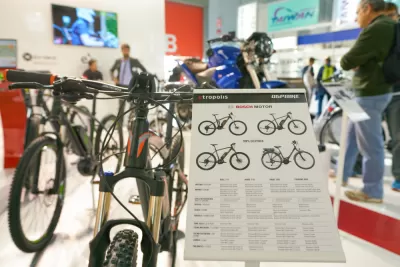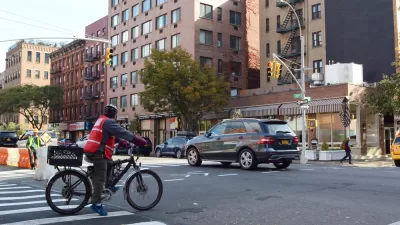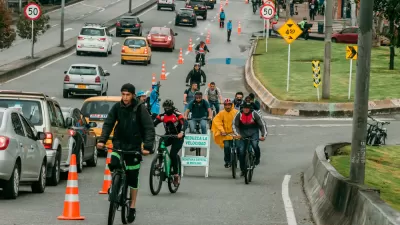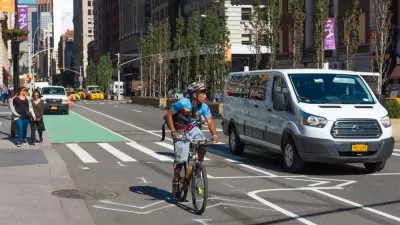North America has experienced a 5% jump in rates of cycling since the U.S. started staying home. As electric bikes enjoy impressive sales increases, cities around the world consider making the shift permanent by planning bike-friendly infrastructure.

Electric bike sales are booming worldwide as more travelers opt for alternatives to cars and public transportation. Thomas Ricker and Andrew J. Hawkins, as well as many public officials and community members, urge that this trend should be made permanent. Cities around the world, they say, need to provide bike-friendly infrastructure to make possible a considerably less car-reliant future.
"It’s a remarkable transformation, but it could all be undone if cities aren’t bold in how they reimagine their streetscapes," warn Ricker and Hawkins. In Paris, plans are being made to convert a city-spanning thoroughfare into a bike highway.
Some other cities, unfortunately, aren't following the lead. In many cases, "the COVID-19-era transportation measures being rolled out by cities are being done so timidly, often behind the guise of temporary change," according to Ricker and Hawkins, attributing the hesitancy to an assumption that a return to business as normal necessitates car-reliance. Calls to action resonate with those who see new transportation trends as an opportunity to restructure and reprioritize the way people travel through cities.
"If not now, when?" question Ricker and Hawkins.
FULL STORY: CITIES ARE TRANSFORMING AS ELECTRIC BIKE SALES SKYROCKET

Trump Administration Could Effectively End Housing Voucher Program
Federal officials are eyeing major cuts to the Section 8 program that helps millions of low-income households pay rent.

Planetizen Federal Action Tracker
A weekly monitor of how Trump’s orders and actions are impacting planners and planning in America.

The 120 Year Old Tiny Home Villages That Sheltered San Francisco’s Earthquake Refugees
More than a century ago, San Francisco mobilized to house thousands of residents displaced by the 1906 earthquake. Could their strategy offer a model for the present?

HSR Reaches Key Settlement in Northern California City
The state’s high-speed rail authority reached an agreement with Millbrae, a key city on the train’s proposed route to San Francisco.

Washington State Legislature Passes Parking Reform Bill
A bill that would limit parking requirements for new developments is headed to the governor’s desk.

Missouri Law Would Ban Protections for Housing Voucher Users
A state law seeks to overturn source-of-income discrimination bans passed by several Missouri cities.
Urban Design for Planners 1: Software Tools
This six-course series explores essential urban design concepts using open source software and equips planners with the tools they need to participate fully in the urban design process.
Planning for Universal Design
Learn the tools for implementing Universal Design in planning regulations.
Ada County Highway District
Clanton & Associates, Inc.
Jessamine County Fiscal Court
Institute for Housing and Urban Development Studies (IHS)
City of Grandview
Harvard GSD Executive Education
Toledo-Lucas County Plan Commissions
Salt Lake City
NYU Wagner Graduate School of Public Service





























